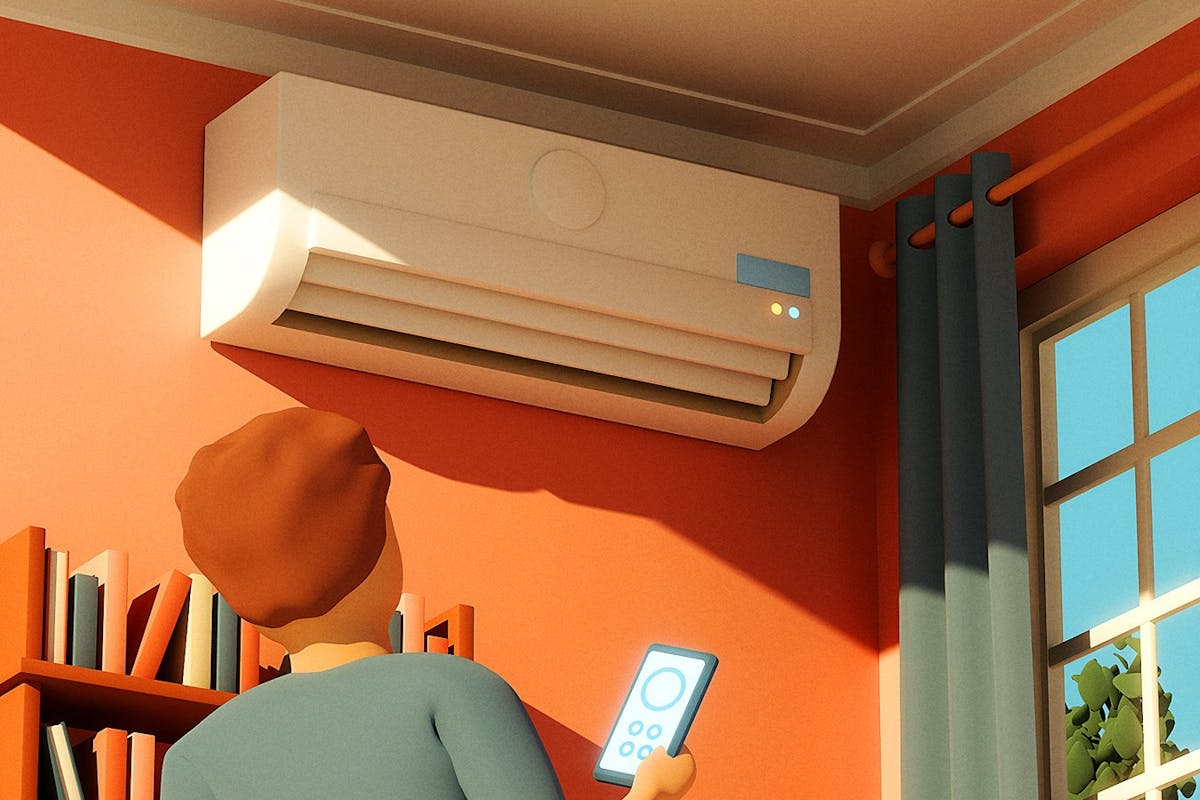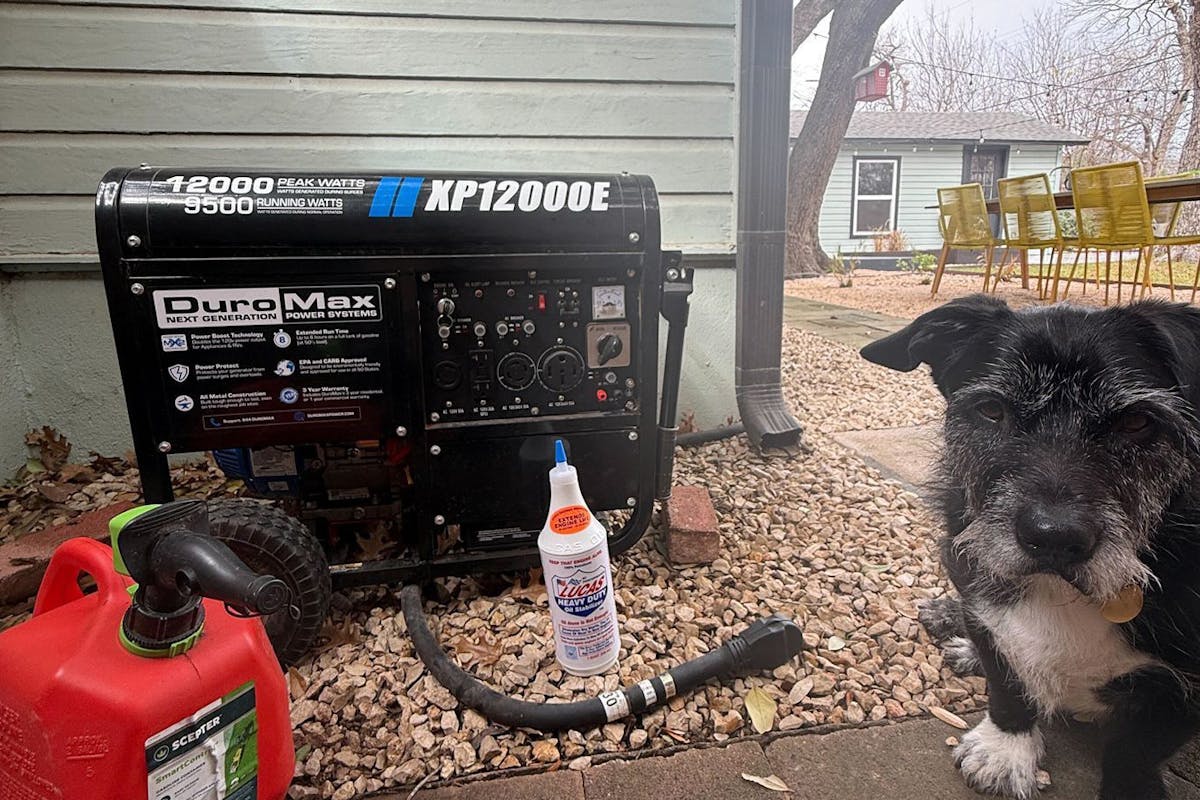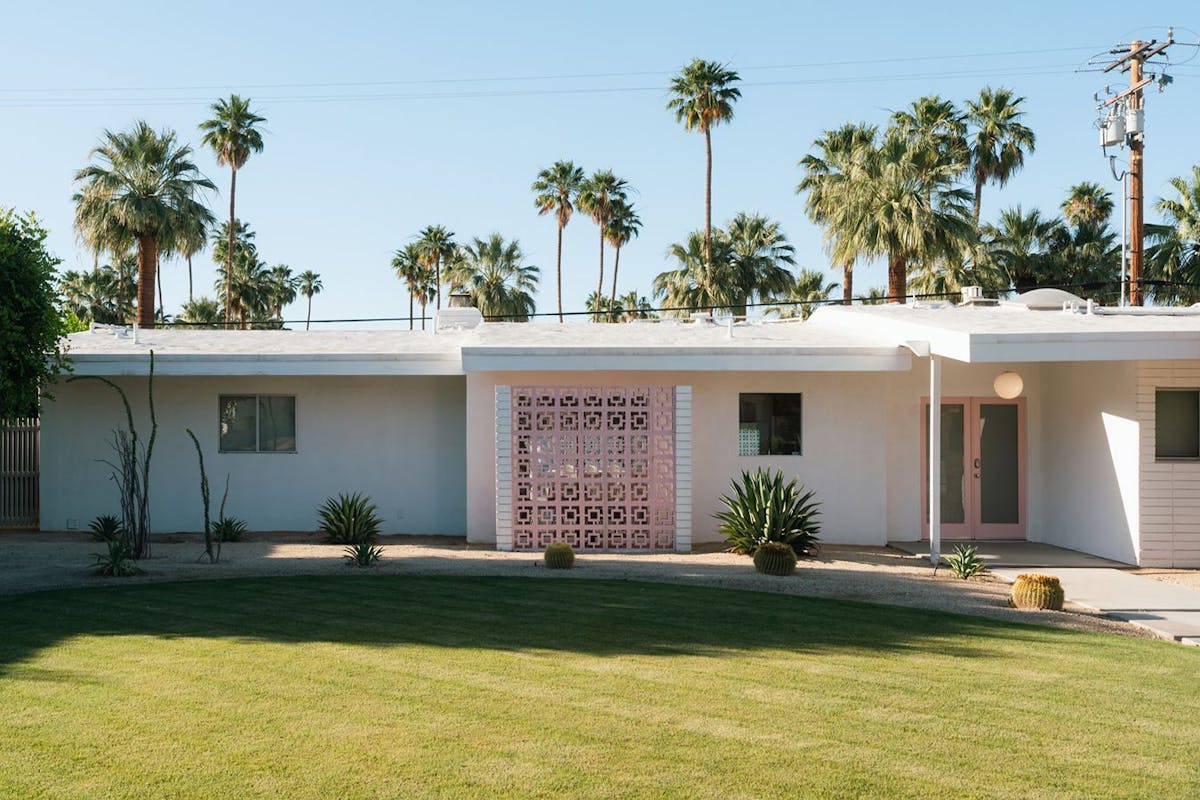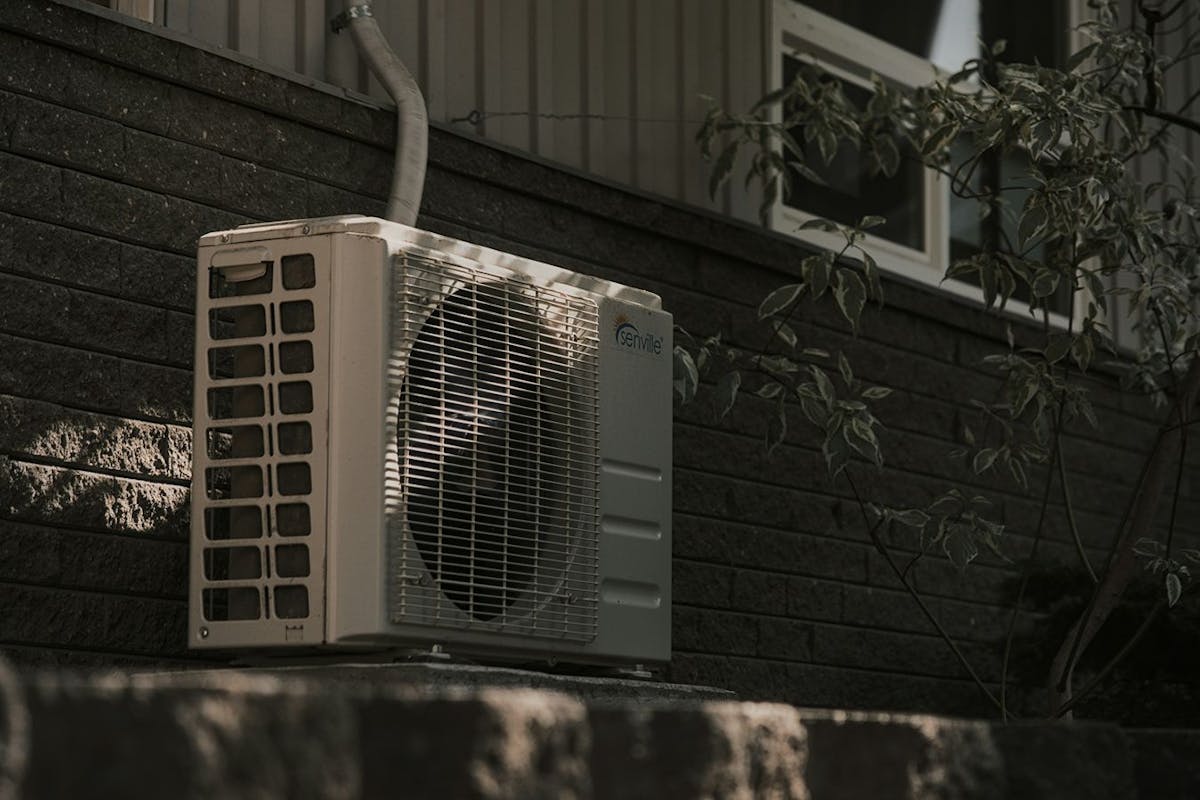Mini-Split Heat Pumps vs. Central Heat Pumps: Pros and Cons
Last edited
Author
Andrew Giermak
Solar and Electrification Writer and Editor
Editor
Andrew Blok
Electrification and Solar Writer and Editor

When upgrading or replacing your home heating and cooling, you may look at central and mini-split heat pumps. Both can reduce your energy costs compared to other heating and cooling systems.
Better indoor air quality and zoned heating and cooling might be factors, too. A mini-split heat pump system gives many homeowners the best in energy efficiency, which can mean long-term savings. Take a look at the pros and cons of mini-split heat and central heat pumps.
See how much you can save with a new HVAC system from Palmetto
What are mini-split heat pumps?
Mini-split heat pumps, also referred to as ductless or zoned heat pump systems, are made up of an outdoor unit, like a central heat pump, and one or more smaller indoor units, typically mounted on a wall. As with all heat pumps, mini-split heat pumps can provide both heating and cooling by moving heat into or out of a home.
Mini-split heat pumps (and all heat pumps) work like a reversible refrigerator or air conditioner. Each small indoor unit transfers heat into or out of its own space via refrigerant lines. When cooling, the heat pump removes heat directly from the nearby air. The refrigerant line needs a small hole in a wall, but no ductwork, which is a big reason mini-split heat pumps are very energy efficient. Energy Star reports about 30% of a central HVAC’s energy is wasted by air going through ductwork.
How does a central heat pump work?
A central heat pump works in much the same way as a mini-split system except instead of having multiple smaller air handlers placed throughout the home, a central system has one large air handler, a blower fan, and ductwork to move cooler or warmer air around the house. It’s designed to give one, consistent temperature for the whole home.
A central heat pump pulls air from all around the house before cooling or heating it and sending it back through your home's ducts and vents.
See how much you can save with a new HVAC system from Palmetto
Mini-split vs. central heat pump pros and cons
Here’s a rundown of the benefits and drawbacks of mini-split heat pump and central heat pump systems.
Mini-split pros
- Energy efficiency: You won’t lose air you paid for to heat up or cool down as it travels through your ducts. A mini-split heat pump generally has a coefficient of performance (COP) range of 3.0-4.5. In other words, it moves 3-4.5 units of heat for every unit of electricity it consumes. A central heat pump’s COP is usually from 2.0-4.0. The energy efficiency benefit of a mini-split heat pump is even greater when compared to non-heat pump systems.
- Savings: By saving energy with zoning or eliminating energy loss in ducts, mini-split heat pumps can save you money. Compatibility with smart devices and smart thermostats to use scheduling, programming, and AI control can give you better efficiency and more savings.
- Comfort: A zoned-system allows you to address the hot or cold spots that can arise with a central system. That’s greater comfort in every room.
- Zoning: Mini-split heat pumps can be operated in a zoned system, allowing you to direct your climate control where you need it when you need it.
- Quiet: Mini-split air handlers are typically very quiet.
Mini-split cons
- Higher upfront cost: A mini-split system generally has a higher initial cost of purchase and installation. This may not be the case for a building with no ductwork or a brand-new construction.
- Space: While meant to be mounted high on walls, typically out of the way, some homeowners may not like having indoor units in multiple rooms.
- Filtration: Mini-split systems have air filters, but may not be capable of higher filtration levels. If you need filtration for allergens or health reasons, you may need a HVAC system with more customizable filtration or an additional air purification system.
Central heat pump pros
- Whole-home filtration: If you need filtration or dehumidification to be consistent throughout your home, a central heat pump system likely makes more sense than multiple mini-split units.
- Maintenance: With one central air handler and fewer filters, it may be easier to keep up with maintenance. It’s recommended to clean and check mini-split units about once a month depending on usage, model, and air quality.
- Home layout: Some homes, especially with large spaces or open floor plans, may have better performance and efficiency with a central heat pump vs. mini-split systems.
- You already have ducts: If you have ducts, in good condition, it will likely be more affordable upfront to go with another central heat pump.
Central heat pump cons
- Control level: Mini-split heat pumps give you the best zoned control for the best performance and efficiency.
- Invasive ductwork: If you have a newly-constructed building or a building without ductwork, then putting in ductwork for a central heat pump could be more expensive.
- Efficiency: Central heat pumps are, relative to many other heating and cooling methods, highly energy efficient, but typically less efficient than mini-split systems due to energy/air loss through ductwork.
Is a mini-split or central heat pump better for you?
Choosing the right heat pump system for your home is a major investment with many important considerations. Weighing the initial cost, the likely cost over the years to come, how you’ll use the system, and the performance and comfort you want for your home are some of the main decisions.
A mini-split system could be the best fit when you want zoned control. If you’re building from scratch and don’t want ductwork, adding heating and cooling into a new addition, or have a property with no ductwork, a mini-split heat pump could make more sense.
On the other hand, a central heat pump may give you easier control for the whole home, better air filtration, and be less expensive upfront for a home with existing ductwork.
One more consideration is looking at a way to upgrade your home heating and cooling system for no money down. A heat pump lease makes it possible to have all the benefits of a new energy-efficient heat pump with a budget-friendly monthly payment and no upfront expense.
Connecting with the right team about your home heating and cooling and overall energy needs is another way to make the best decision. It’s easy and free to track your home energy usage and expenses, and see ways to save energy and money with the new Palmetto app. You can check out a heat pump lease with the Palmetto Comfort Plan and our HVAC advisor page today.
See how much you can save with a new HVAC system from Palmetto
Frequently asked questions
Are mini-splits cheaper than central heat pumps?
In general, central heat pumps are less expensive with the upfront purchase and installation. Mini-split heat pumps are more likely to save you energy and money over the years you’ll have the system. The answer for a specific home depends on factors such as what is being replaced, whether your home has ductwork, if extra labor and construction is needed, your heating and cooling usage, your home’s layout, and more.
What are the advantages of mini-split heat pumps?
Positives with mini-split heat pumps typically are excellent energy efficiency and having a zoned heating and cooling system.
What is the difference between mini-split heat pumps and ductless heat pumps?
Mini-split heat pumps and ductless heat pumps are terms describing the same systems. Mini-split refers to the split system of interior and exterior units. Ductless refers to needing no ductwork like most other HVAC systems do.
What is duct sealing?
Duct sealing is the job of fixing, or sealing, the cracks, leaks, or connecting points in ductwork. Some duct-sealing projects can be DIY jobs while some are professional-level work. Duct sealing is important to air quality, comfort, and HVAC efficiency.


